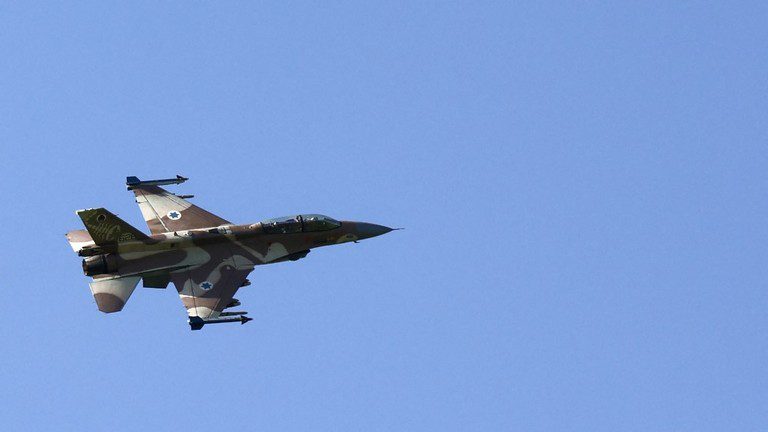World
Reports: Israel hits Syria, killing scores of people

The Israeli government has been accused by the Syrian Defense Ministry of carrying out a series of airstrikes near Aleppo. The strikes, which have not been acknowledged by Israel, reportedly resulted in the deaths of approximately 40 individuals.
The Defense Ministry released a statement stating that the attack took place in the early hours of the morning, targeting various locations in the Aleppo countryside. While the ministry did not provide specific details regarding casualties or damages, it did confirm that both civilians and military personnel were among those killed and injured.
According to reports from Reuters and the Syrian Observatory for Human Rights, the death toll ranged from 38 to 43 individuals. The strikes were said to have targeted Syrian soldiers, Iran-backed Hezbollah fighters, and a weapons depot near Aleppo International Airport. Israel has not commented on the incident, as it typically remains silent about its operations in Syrian airspace.
However, the country often takes responsibility for extraterritorial killings. In a separate incident, an Israeli drone killed Hezbollah deputy missile commander Ali Abed Akhsan Naim in southern Lebanon.
The Israel Defense Forces (IDF) shared a video of the strike on social media, showing a missile hitting a car believed to be carrying Naim.
This attack comes amidst ongoing missile and rocket exchanges between Hezbollah militants and Israeli soldiers, which began after Israel’s war on Gaza. Both sides have engaged in retaliatory strikes, with Hezbollah aiming to tie up Israeli forces near the Lebanese border and create fear among Israeli political and military leaders. Similarly, Shia militia groups in Syria have adopted similar tactics on a smaller scale.
In recent days, there has been a notable surge in the frequency and severity of cross-border attacks, escalating tensions between Israel and Lebanon. On Wednesday, Israeli airstrikes struck southern Lebanon, resulting in the tragic loss of 16 lives, including seven paramedics. These airstrikes were conducted in response to a barrage of rockets launched by Hezbollah into Israel, which claimed the life of one individual.
The escalation of violence underscores the volatile situation along the Israel-Lebanon border, reigniting concerns about the potential for wider conflict in the region. The loss of civilian lives, including paramedics who serve as essential first responders, is deeply concerning and underscores the urgent need for de-escalation and diplomatic efforts to prevent further bloodshed.
The cross-border attacks represent a dangerous escalation in hostilities between Israel and Lebanon, threatening to destabilize an already fragile region. Both sides must exercise restraint and prioritize dialogue to prevent the situation from spiraling further out of control.
The international community, including regional stakeholders and global powers, must work together to de-escalate tensions and address the root causes of the conflict. Diplomatic channels must be utilized to facilitate dialogue and negotiations, with the aim of achieving a sustainable ceasefire and resolving underlying grievances through peaceful means.
Efforts to address the underlying issues fueling the conflict, including political, economic, and social factors, are essential for achieving long-term stability and security in the region. This includes addressing the legitimate concerns and grievances of all parties involved and working towards a comprehensive and inclusive peace process.
The tragic loss of life resulting from the recent escalation underscores the urgent need for a renewed commitment to peace and stability in the Middle East. All parties must prioritize the well-being and safety of civilians, and refrain from actions that escalate tensions and endanger lives.
As the situation continues to unfold, it is imperative that all stakeholders remain engaged and committed to finding peaceful solutions to the complex challenges facing the region. Only through sustained dialogue, cooperation, and compromise can lasting peace and security be achieved in the Israel-Lebanon border area, and the broader Middle East region as a whole.
